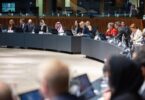Iqbal Khan
The US Special Representative for Afghanistan Reconciliation Zalmay Khalilzad has held a series of meetings with senior Taliban officials including Mullah Abdul Ghani Baradar, younger brother of erstwhile Taliban Supremo Mullah Umar who heads Taliban’s Doha office in Qatar. Mullah Abdul Ghani Baradar, a co-founder of the Taliban was released last year from a Pakistani prison. His lead role in the talks with Khalilzad is considered significant because of his important role within the Taliban. His appointment is widely seen as a fresh effort by the Taliban to emerge from the political and diplomatic shadows. Baradar gave the opening address, met with all the US and Qatari officials.
These talks mark the highest level negotiations between the two sides since the US ramped up peace efforts last year. General Scott Miller, the top US and NATO commander in Afghanistan, has also attended at least some of the talks. And Secretary of State Mike Pompeo has suggested he could visit Doha to help advance the negotiations “in a couple (of) weeks”. Notwithstanding, on March 07, General Joseph Votel, head of US Central Command, said the military has received no directions yet to withdraw from Afghanistan.
Taliban have once again denied that they were discussing a ceasefire and dialogue with the Kabul government during ongoing talks with the US, contrary to statements from Washington. Earlier US State Department spokesman Robert Palladino had affirmed the opposite. “What we’re focusing on are the four interconnected issues that are going to compose any future agreement”, Palladino said — terrorism, troop withdrawal, intra-Afghan dialogue and ceasefire.
The path to peace doesn’t often run in a straight line. Situation in Afghanistan is complex and like all sensitive talks, not everything is conducted in public. Sources close to the Taliban said details of the negotiations will not be announced unless the two sides reach a conclusion on some disputed topics, including a timeline for withdrawal of US forces from Afghanistan and the assurance by the Taliban that Afghanistan’s territory is not used as a threat against interests of any other country. Afghan government worries that Washington could negotiate an abrupt pull-out in their absence, leaving communities that opposed the Taliban in danger and imperilling reforms.
General Joseph Votel told the House Armed Services Committee that the political conditions of where we are in the reconciliation right now don’t merit ‘withdrawal’.
He pointed out that “Afghan government troops are not yet ready to stand on their own. Therefore withdrawal decisions have to be based more on conditions than specific times and must “pivot off political progress.” He advised that any decision to reduce forces in Afghanistan should be done in full consultation with other coalition partners and the government of Afghanistan.
US troop withdrawal and counter terrorism assurances by Taliban are the main issues under discussion. While these two agenda items are significant, neither is simple and neither are they sufficient to achieve piece.
These are moves in a chess game that has run for quite some time. The US troop withdrawal has long been the Taliban’s priority, and that desire dovetails with President Trump’s apparently similar hope to withdraw US troops. In December in the aftermath of Trump ordering the withdrawal of US troops from Syria, the US press reported on chatter within the White House that Trump wanted to do much the same in Afghanistan.
The last round in January had secured a broad framework agreement but few details on critical aspects of a cease-fire and withdrawal. US President Donald Trump had told Congress in February that he intended to reduce US forces from Afghanistan as negotiators make progress in talks with Taliban insurgents, saying: “Great nations do not fight endless wars.” And, “We have all the right people in the room on both sides.” Trump declared.
The US is pushing Taliban to meet with the Afghan government, which the group has so far snubbed, and to agree to a cease-fire ahead of its annual spring offensive. Taliban consider the Afghan government a puppet regime of the US and have refused direct talks. President Ashraf Ghani has, time and again, expressed frustration at being excluded from the negotiations.
According to President Ghani’s spokesman, Haroon Chakhansuri, main topics of the talks are withdrawal of foreign forces from Afghanistan, ensuring that Afghanistan’s territory is not used as a threat against any other country, a comprehensive ceasefire and direct talks between the Afghan government and the Taliban. And, Taliban are likely to refrain talking on other issues if the two sides do not reach a conclusion about the withdrawal of US forces from Afghanistan. Pakistan’s Permanent Representative to the United Nations, Maleeha Lodhi, has stated that ongoing troubles with India in Kashmir are diluting Pakistan’s attention and influence in Afghan peace process.
According to New York Times assessment of March 08, captioned “Afghan talks hinge on one question: What is terrorism?” More than a week after the US and the Taliban began another round of peace negotiations with high hopes, both sides are beginning to realize that their efforts will likely be complicated and frustratingly slow. Even the definitional issues regarding basic terms like terrorism have disagreements. Secretary of State Mike Pompeo has complicated matters by saying that he considered the “Taliban themselves terrorists”. The peace effort and Taliban’s major attacks continue in tandem, in one such attack, Taliban fighters killed at least 23 Afghan security forces in an attack on Camp Shorab, a sprawling military base in Helmand.
Despite the recent positive developments, there are a number of complexities and spoilers involved in the peace process. Perseverance, moderation of expectations and patience are key to success.






